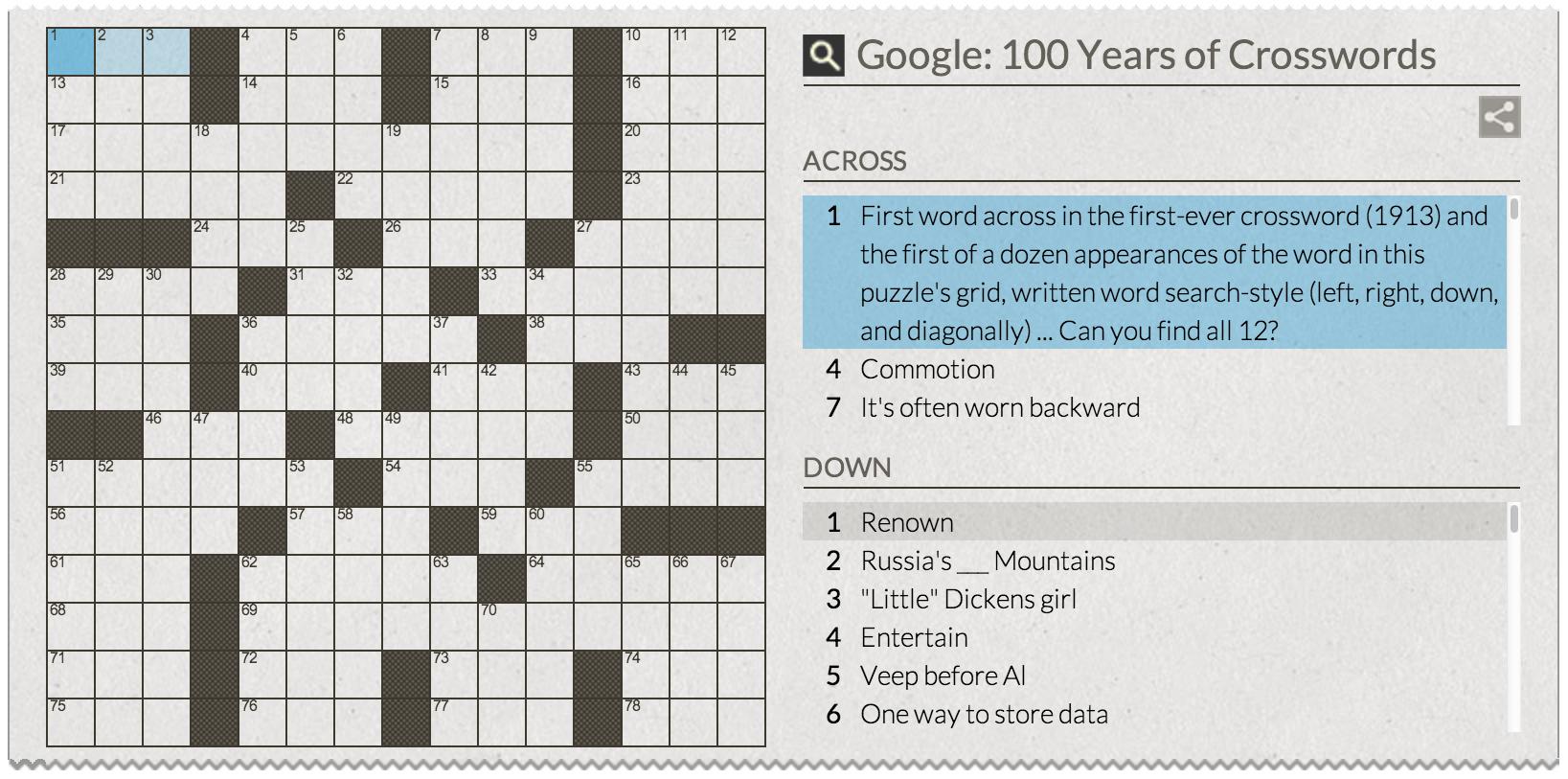The crossword puzzle—that staple of newspapers across the country—turns 100 years old tomorrow, Dec. 21. In honor of its centennial, Google challenged its doodlers yet again, leading to today’s fun, interactive crossword.
Earlier this week I spoke with the people behind the project. The doodle team worked on the idea for a bit earlier this year, but the project was shelved when there was not enough interest among doodle staff. Their minds were changed when Google programmer and crossword enthusiast Tom Tabanao, a consultant in the project’s early stages, asked a colleague what he could do to help get it going again. When she suggested that he create a demo to drum up interest, he revealed that he’d already made one that was ready to go.
They eventually decided that a “legitimate crossword constructor” should be brought on board to help design the doodle, and Tabanao’s first choice was Merl Reagle, long-time creator of the San Francisco Chronicle’s Sunday puzzle. Reagle “appeals to a broad audience,” Tabanao told me. “You know there are some edgier constructors, there’s some constructors that do kind of crazy things with unusual letters … but it seemed like a good fit between Merle’s audience and Google’s audience.”
The goal, Reagle explained, was to make a “populist puzzle” that most people could solve, with ideas that would have “some sort of visual angle” after they were revealed. Reagle created the puzzle, Tabanao, who served as the lead engineer, offered some feedback, and then the rest of the Google team, including lead artist Brian Kaas, took over.

Photo courtesy of Google
The result is a Google crossword that nods to the very first puzzle of its kind, created by the English-born Arthur Wynne and published by New York World in 1913. To commemorate the holidays, he “synthesized a lot of different puzzles into one,” Reagle explained, and called it a “word-cross.” A few weeks later, a typographer miswrote it as “crossword.” Wynne decided he liked that phrasing better, and that’s how it’s been known ever since.